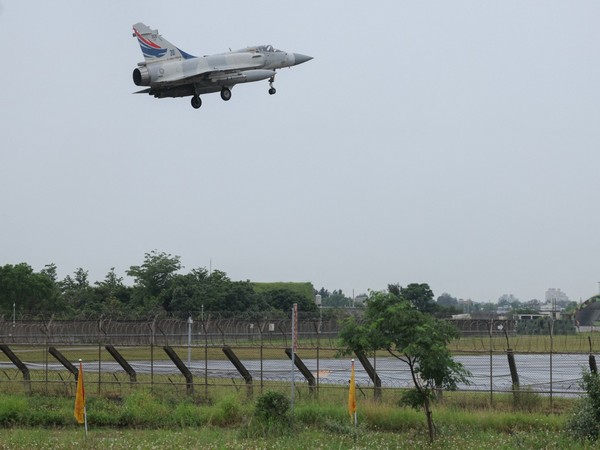China commenced its second day of military exercises around Taiwan on Friday, with a focus on testing its capacity to “seize power” and control strategic regions, actions perceived as a response to Taiwan’s President Lai Ching-te’s recent inauguration, Channel News Asia reported.
The drills, spanning the Taiwan Strait and areas adjacent to Taiwan-controlled islands near China’s coast, commenced just days after Lai’s assumption of office. China, considering Taiwan as its integral territory and labelling Lai as a “separatist,” criticised his inaugural address, where he called upon Beijing to cease its threats, emphasising that both sides of the strait are independent entities.
China’s People’s Liberation Army’s Eastern Theatre Command stated that its forces continued with the exercises named “Joint Sword – 2024A” on Friday, aimed at assessing their capability to “jointly seize power, launch joint attacks, and occupy key areas,” as reported by Channel News Asia.
Despite Lai’s repeated offers for dialogue with China, he has been met with refusal. Lai asserts that Taiwan’s future should be determined solely by its people, rejecting Beijing’s claims of sovereignty over the island.
In response to the ongoing military manoeuvers, the United Nations urged all parties to exercise restraint, while the United States, Taiwan’s staunch ally and military supporter, strongly called upon China to act with moderation.
China’s assertion of Taiwan’s sovereignty and its pledge to unify the democratic island, even through force if necessary, remain consistent. The drills conducted on Thursday and Friday entail aircraft and naval vessels encircling Taiwan to evaluate their combat readiness, China’s People’s Liberation Army (PLA) said.
Taiwan responded by mobilising its air, sea, and ground forces, with the defence ministry pledging to “defend freedom”.
President Lai, in a speech, affirmed his commitment to defending Taiwan against external challenges and threats, underscoring the values of freedom and democracy.
“Faced with external challenges and threats, we will continue to defend the values of freedom and democracy, and safeguard peace and stability in the region,” he said.
The drills, initiated on Thursday morning, encompass areas surrounding the Taiwan Strait, as well as regions north, south, and east of the island, including territories such as Kinmen, Matsu, Wuqiu, and Dongyin under Taipei’s administration.
China’s military displayed posters emphasizing its “cross-strait lethality,” featuring weaponry alongside provocative language targeting Taiwan’s independence.
UN Secretary-General Antonio Guterres called for all sides to “refrain from acts that could escalate tensions in the region”, his spokesman said.
US President Joe Biden has previously said he does not support Taiwan’s independence but also that he would back sending forces to defend the island. The official US position on intervention is one of ambiguity, according to Channel News Asia.
“We strongly urge Beijing to act with restraint,” a US spokesperson said, adding China’s actions “risk escalation and erode longstanding norms that have maintained regional peace and stability for decades”.
China’s historical claim over Taiwan, stemming from the civil war’s aftermath 75 years ago, remains a point of contention. China perceives Taiwan as a breakaway province that must be reunited with the mainland eventually.
Chinese military experts suggested that the exercises were also aimed at rehearsing an economic blockade of Taiwan, particularly targeting critical ports like Kaohsiung to disrupt foreign trade and energy imports.
These military manoeuvres echo similar exercises conducted in August last year, following Lai’s visit to the United States, and in 2022 after diplomatic visits between Taiwan and US officials.
World powers emphasize the importance of stability in the Taiwan Strait due to its significant role in global trade and as a major tech manufacturer, particularly in semiconductor production.
The ongoing tensions between China and Taiwan underscore the delicate balance of power in the region, with implications not only for the two entities but also for international geopolitics and economic stability, Channel News Asia reported.-ANI



